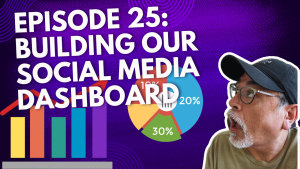Understanding the difference between a job mindset and a career mindset can fundamentally change your professional trajectory. A job mindset typically prioritizes immediate financial rewards, stability, and clear boundaries between work and personal life. In contrast, a career mindset emphasizes long-term growth, professional development, and the pursuit of meaningful work. Recognizing whether you lean toward a job mindset or a career mindset is crucial, as each brings unique advantages and challenges. According to research highlighted in Frontiers in Psychology, individuals who adopt a career mindset and possess a growth-oriented approach often engage more proactively in their roles, leading to higher job satisfaction and career advancement.

Defining the Job Mindset
Individuals with a job mindset typically view their employment as a means to an end, primarily focusing on salary, stability, and predictable work hours. Work is often compartmentalized, separate from personal identity and ambitions. This approach can offer clarity and comfort, reducing the risk of burnout. Such individuals often value clear boundaries, consistent routines, and predictable outcomes, creating an environment of stability and security.
However, this approach may limit professional growth opportunities. People entrenched in a job mindset might hesitate to pursue additional responsibilities or further education, potentially restricting their advancement. Research published by Heslin et al. (2019) suggests that those with a fixed view toward their professional roles, or a job mindset, may experience lower engagement levels and fewer developmental opportunities compared to their growth-oriented counterparts.
Embracing the Career Mindset
Conversely, individuals with a career mindset perceive their professional life as an ongoing journey of growth and personal development. They actively seek opportunities to enhance their skills, network, and climb professional ladders, aligning their career paths with their personal goals and values. According to Burnette and Pollack (2013), individuals with a growth mindset actively pursue networking and learning opportunities, essential attributes for objective and subjective career success.
People with a career mindset often view challenges and setbacks as opportunities to learn, improve, and pivot toward more meaningful objectives. They leverage professional networks and actively seek mentors, continuously refining their skills and broadening their professional horizons.
Benefits of a Career Mindset
A career mindset can significantly enhance professional satisfaction and emotional well-being. In their research featured in Humanities and Social Sciences Communications, researchers Liu et al. (2024) discovered that individuals with a career mindset experienced greater affective well-being when they engaged in positive reflections about their work and managed their work-life interactions effectively. They found that individuals who approached their careers with intentionality and positivity were not only more professionally successful but also enjoyed greater overall happiness.
Moreover, those with a career mindset tend to engage in job crafting, actively shaping their roles and responsibilities to better fit their strengths and passions. This proactive approach, as noted by Kooij et al. (2023), often results in higher performance and personal satisfaction, underscoring the advantages of adopting a long-term growth-oriented mindset.
Advantages of a Job Mindset
It is equally important to recognize the distinct benefits of maintaining a job mindset. This perspective can provide greater work-life balance, lower stress, and a clear separation between professional and personal identities. Individuals with a job mindset are often highly efficient, focusing on delivering consistent performance within clearly defined parameters. They typically prioritize family, hobbies, or personal fulfillment outside the workplace, contributing significantly to their overall happiness and life satisfaction. This mindset can be particularly beneficial in roles requiring stability, reliability, and routine precision. It ensures sustained, dependable performance over long periods, critical for organizational efficiency.
Strategies to Thrive with a Job Mindset
Individuals with a job mindset can thrive professionally and personally by leveraging specific strategies. First, clearly defined boundaries can be reinforced to ensure work remains manageable and enjoyable. Second, proactively seeking skill enhancement opportunities that directly align with their current roles can provide incremental satisfaction and modest career advancement without compromising the desired balance. Finally, adopting elements of job crafting, such as adjusting tasks slightly to align more closely with personal strengths, can enhance job satisfaction without necessitating a dramatic shift toward a career mindset.
Strategies to Flourish with a Career Mindset
For individuals embracing a career mindset, strategic networking, continuous learning, and resilience in facing challenges are paramount. Actively participating in professional associations, seminars, or certification programs can significantly boost career advancement opportunities. According to Burnette and Pollack’s (2013) insights, nurturing professional relationships through networking can dramatically enhance career trajectories.
Additionally, fostering a reflective practice of regularly evaluating personal and professional goals is crucial. Engaging in positive work reflection, as highlighted by Liu et al. (2024), can greatly enhance emotional well-being and help maintain motivation and direction.

Integrating the Mindsets
A hybrid approach, integrating elements from both the job mindset and career mindset, can offer substantial benefits. Individuals who balance immediate job satisfaction with long-term career aspirations often achieve sustainable professional growth and enhanced personal well-being. This integrated mindset encourages professionals to pursue incremental improvements in their current roles while strategically planning for future opportunities.
For example, individuals with traditionally job-focused roles can occasionally pursue training that aligns with their passions or skills, gradually expanding their responsibilities and satisfaction levels. Conversely, career-focused professionals should consciously cultivate downtime and boundary-setting practices to avoid burnout and ensure sustained long-term success.
Encouragement for All Mindsets
It’s critical to acknowledge that both the job mindset and the career mindset offer meaningful pathways to success. Neither approach is universally superior; instead, recognizing and embracing one’s current mindset allows individuals to strategically leverage its strengths and address its limitations effectively. Encouragingly, research from Kooij et al. (2023) emphasizes that mindset flexibility, being open to periodically reassessing and adjusting one’s approach, often correlates with higher job satisfaction and professional resilience.
Professionals should consistently evaluate their mindset toward their work and actively decide whether a shift or reinforcement of their current approach is warranted. Understanding the fundamental differences between the job mindset and career mindset equips individuals with the knowledge and tools necessary to thrive in any professional context. As reinforced by the insights of Heslin et al. (2019), clarity about one’s professional identity and deliberate mindset management can profoundly impact professional satisfaction and success.
In embracing their respective mindsets fully, individuals enhance their capacity to achieve personal fulfillment, professional effectiveness, and sustained well-being. Ultimately, whether you currently identify more closely with a job mindset or a career mindset, recognizing and leveraging the strengths inherent in each will ensure continued growth and satisfaction throughout your professional journey.



































